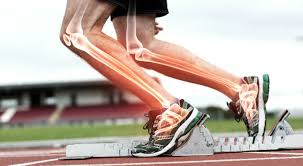From minor strains to more serious complications, sports injuries can affect anyone who participates in physical activities. Understanding these injuries and the role of sports medicine in treatment can help active individuals recover efficiently and return to their activities safely. Here is more information on sports medicine, sports injuries, different types, and the benefits of seeking expert care:
What Is Sports Medicine?
Sports medicine is a specialized branch of healthcare that focuses on the treatment and prevention of injuries associated with physical activity. It combines medical knowledge with an understanding of physical performance to assist individuals in maintaining optimal functionality. While commonly linked to athletes, sports medicine benefits anyone who experiences injuries from movement or exercise. By integrating expertise from healthcare professionals, this medicine addresses injuries and provides strategies to prevent future harm.
What Are the Available Services?
This medicine offers a range of services tailored to the needs of those recovering from physical activity-related health issues. Diagnostic assessments and imaging, such as X-rays or MRIs, are available to evaluate the extent of injuries. Preventative care is another key component, which may involve education on proper technique and customized plans. Post-injury management frequently includes long-term follow-up care to monitor progress and prevent recurrence.
What Are Sports Injuries?
Sports injuries occur when physical activity causes damage to tissues such as muscles, ligaments, bones, or cartilage. These injuries vary in severity, ranging from mild discomfort to significant impairment. Some may develop suddenly during a specific movement, while others evolve gradually from overuse.
Common causes of sports injuries include accidents, improper technique, overexertion, or inadequate warm-up routines. Such injuries can impact physical performance and, if untreated, may lead to complications or chronic issues. Seeking early intervention and treatment improves the chances of a full recovery.
What Are the Different Types?
Sports injuries are categorized into acute and chronic types. Acute injuries occur suddenly and may include:
- Sprains: Injury to the ligaments, commonly in the ankle or wrist.
- Strains: Muscle or tendon injuries, often caused by overstretching.
- Fractures: Breaks or cracks in bones due to impact or falls.
- Dislocations: Bones forced out of their natural alignment, frequently in the shoulders or fingers.
- Contusions: Bruised tissues caused by direct blows.
Preventative measures, proper training, and regular rest can help reduce the occurrence of chronic injuries.
How Does Sports Medicine Treat Sports Injuries?
Advanced techniques in sports medicine effectively treat multiple injury types. Stem cell therapy repairs damaged tissue by promoting regeneration at the cellular level. It involves injecting stem cells into the injured area to encourage healing. Amnion injections utilize placenta-derived tissue to reduce inflammation and stimulate repair in damaged joints or tendons.
PRP therapy uses concentrated platelets from the patient’s blood to accelerate healing. Platelets contain growth factors that stimulate tissue repair and regeneration. MLS laser therapy is a non-invasive treatment that uses light waves to reduce pain and inflammation. Targeting injured tissues at the cellular level promotes faster healing while relieving discomfort associated with injuries.
Shockwave therapy employs sound waves to stimulate blood flow and repair damaged tissues. It is particularly effective for plantar fasciitis, tendonitis, and chronic pain. These treatments may be combined with customized recovery plans to address each patient’s needs.
Get Treatment for Your Sports Injury Today
Sports injuries can disrupt an active lifestyle, but early intervention and expert care can lead to successful recovery. Sports medicine provides knowledgeable professionals, advanced diagnostic tools, and tailored treatment plans to assist patients at every stage of the recovery process. Contact a specialist today if you or someone you know is dealing with a sports injury.
- Zirconia Cap Price: Estimated Cost & Its Long-Term Benefits
- FREHF – The Revolutionary Future Of Human-Centered Technology!
- Adsy.Pw/Hb3 – Boost Your SEO And Drive More Traffic!
- Fitness Based Vacations By Timeshealthmage.com!
- TimesHealthMag Tips For Improving Sleep Quality – Expert Advice For Better Rest!


Leave a Reply